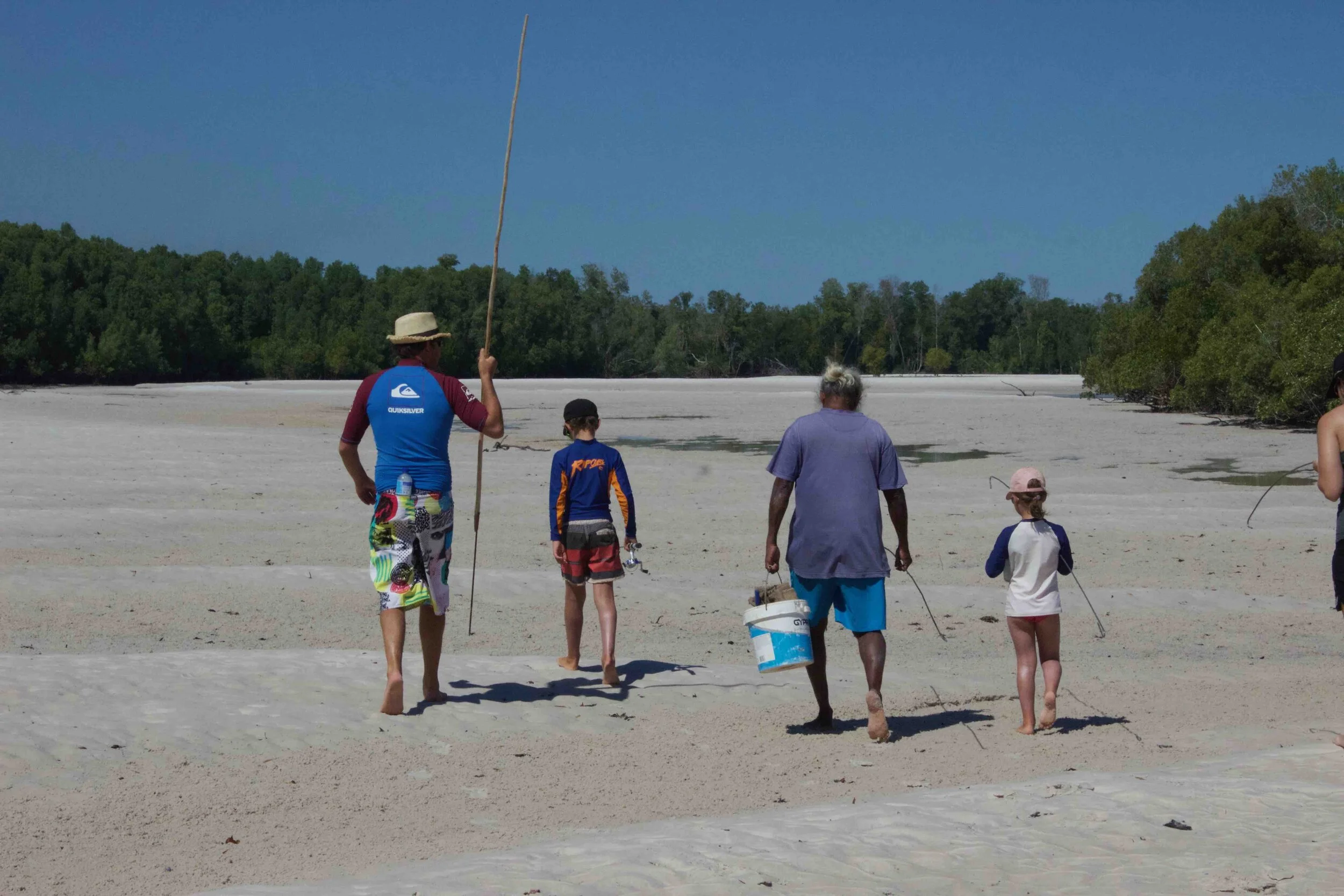Listen, what will you discover?
At the tippity top of Western Australia, the peninsula north of Broome, are the pristine blue waters of the Indian ocean rich with marine life - a nursery for whales and turtles, a haven for sea birds and home to world famous pearls. The natural wonderland that surrounds the red sandy arid land of Kooljamin is home to the Bardi people.
When we travelled through Central and Western Australia, it was the obvious place for us to explore this salt water wonderland and experience country and culture with the original custodians and caretakers of the land.
We tagged along as Brian Lee, an indigenous local, took us over sand dunes, into the shallows with sharks, shared stories about spears and shells, and walked us across baking mud flats to uncover the hiding holes of crabs and fish within the mangrove roots.
As anyone who has experienced fishing would know, you need to be patient, still and prepared to wait. There's no certainty or guarantees. You can spend hours trying a particular place, method or bait with no success, only to adapt your approach and tap into an abundant supply.
We didn't come away with what we expected.
No mud crabs or fish to cook on our evening fire.
Whilst we did thoroughly enjoy ourselves, and we did get a glimpse into how indigenous Australians live, and used to live, harmoniously with the land, the gap between our understanding and awareness of life as an Aboriginal or Torres Strait Islander across our nation remained wider than ever.
What I've recently discovered is, I didn't have to travel to the furtherest corners of Australia to learn, listen to the voices and hear the stories of our Indigenous sisters and brothers.
They're everywhere - in the arts, on social media, on podcasts and in print.
I'd been mistaken to think that because I lived in the South and in a city that the links between the original custodians and country had been built out, severed by massacres, disease, stolen children, and abuse.
Instead, there are resilient, strong, proud indigenous people standing up all around us asking us to acknowledge their pain, listen to their stories and appreciate their rich, ancient culture that respected the land for over 40,000 years.
It's time we talked about the fact their history has been hidden, their way of life almost wiped out and their rights overlooked.
Given race is such a sensitive, political and taboo topic, and we're not taught how to broach difficult conversations, I know it can be hard to know where to begin.
Which is why I invited Krystle Cobran, the author of ‘The Brave Educator - Honest Conversations about Navigating Conversations about Race in the Classroom’, to talk with me and help shine love and light on race and conversations about race.
In the latest episode of ‘Shine Love & Light on’, we chat about why talking about race is so difficult, the real fear and uncertainly about not knowing where to begin, the value in recognising this work is sacred, intimate and highly personal, and why there is no magic switch or quick fix. Krystle reminds us that it's important to listen, be curious and be open to discovering and learning from others' stories.
With Krystle's insights and tips, I now know more and can do better.
I would love you to listen to (or watch) Krystle and be open to listening to the voices that are struggling to be heard (suggestions on how you can be an ally are below!). x

